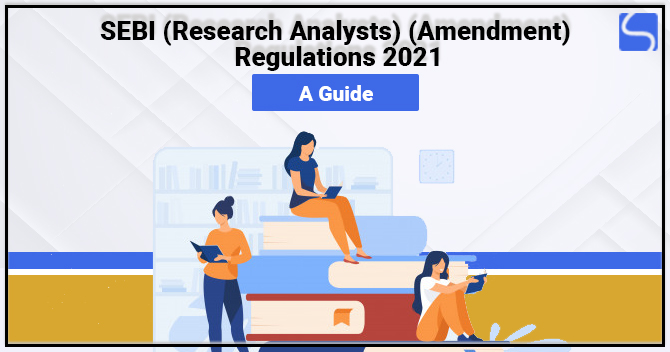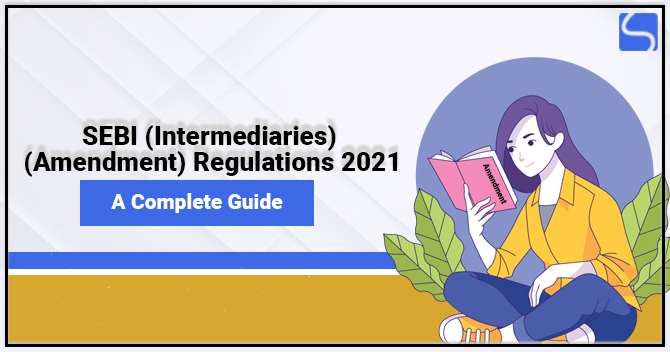SEBI Changes Norms for Independent Directors Appointment and Removal

Karan Singh | Updated: Jul 27, 2021 | Category: SEBI Advisory
With an opinion to authorise or allow independent directors of registered companies or entities, the SEBI (Securities Exchange Board of India) revised norms for independent directors concerning their removal, appointment, and compensation intended to deliver more say to the shareholders. The declaration was made after a board meeting held on June 29, 2021. In this write-up, we are going to discuss the revised or changed norms for independent directors.
Table of Contents
Independent Directors – Who are they?
An independent director states to a non-executive director of an entity who helps the company or entity in developing or improving the corporate credibility and governance standards. Such Director doesn’t have any type of bonding with the company that may impact the independence of their judgement. The word Independent Director is determined in the Companies Act along with some new necessities relating to their appointment, roles, responsibilities, and duties.
The appointment provisions of an independent director are included in Section 149 of the Companies Act, read along with Rule & Rule 5 of the Companies (Qualification & Appointment of Directors) Rules, 2014.
What are the Regulations Norms for Independent Directors Appointment and Removal?
Following are some regulation norms for independent directors:
- The process to be followed by Nomination & Remuneration Committee, while picking applicants for the appointment as Independent Directors, has been detailed, and it has been made more clear, comprising enhanced disclosures regarding the skills required for the appointment as an Independent Appointment and how the proposed applicant fits into that skill set.
- Shareholder consent for an appointment for all directors consisting of Independent Directors will be taken at the next general meeting or within three months of appointment on the Board, whichever is earlier.
- The appointment or re-appointment and the removal of Independent Directors will be implemented via a special resolution of shareholders for all registered companies.
- The symphony of Nomination and Remuneration Committee has been changed to comprise 2/3rd Independent Directors rather than the present necessity of the majority of the Independent Directors.
Eligibility Necessity: Cooling Off Period
- A three year cooling period has been presented for KMP (Key Managerial Personnel) and their relative or employees of promoter group entities for appointment as an Independent Director;
- The employees’ relatives of the entity its subsidiary, holding, or the associate entities are permitted to become Independent Directors, without the requirement of a cooling-off period, in line with the Companies Act, 2013.
Norms for Independent Directors (IDs): Independent Directors’ Resignation
SEBI (Securities Exchange and Board of India) has also stiffened rules or norms relating to the Independent Directors’ resignation. The regulation concerning the Independent Directors’ resignation is as follows:
- The complete resignation letter of an Independent Director should be disclosed along with a list of their current membership and directorships in the board committees;
- A cooling-off period of one year is announced for an Independent Director transitioning to a complete-time director in the identical entity or holding or subsidiary or in a related company or any company which belongs to the promoter group.
Norms for Independent Directors: Audit Committee & Insurance of Directors & Officers
- Directors & Officers Insurance: The requirement to undertake Officers & Directors insurance has been extended to top 1000 companies or entities (by market capitalisation).
- Audit Committee: At least 2/3rd of the audit committee members shall be Independent Directors (IDs), and all relevant party transactions would be consented to by only Independent Directors (IDs) on the Audit Committee.
Other Decisions Taken by SEBI (Securities Exchange and Board of India)
Securities Exchange and Board of India also marked as a host of other decisions, like allowing resident Indian Fund Managers to be elements of Foreign Portfolio Investors. It decreased the minimum investment level in registered Infrastructure Investment Trusts and Real Estate Investment Trusts to Rs. 10,000 to Rs. 15,000 from Rs. 50,000.
SEBI has also changed the norms for the Asset Management Companies or AMCs based on the risk of the schemes, rather than mandatory 1% of the amount raised. Moreover, with an outlook to get better information flow on insider trading cases, the market regulator has enhanced the reward to informants to Rs. 10 crores from Rs. one crore.
The Board of Securities Exchange and Board of India allowed payment and small finance banks to register as a banker to a problem. It is expected to aid widen the reach of the capital markets. The Securities Exchange and Board of India also announced the idea of accredited investors; these are a class of investors who are educated and well-advised regarding investment products. Such investors will enjoy various advantages as those liked by institutional investors.
To expand the debt market, the Securities Exchange and Board of India has announced the NCSR or Non-Convertible Securities Regulations[1]. Experts or professionals believe that it would promote public issuances of debt securities & lower the load on the banking system. Moreover, the Securities Exchange and Board of India simplified rules for Indian fund managers to perform as Foreign Portfolio Investors.
Conclusion
The changes have been suggested to be in place from January 01, 2022. Further, the Securities Exchange and Board of India has also recommended some fundamental norms for Independent Directors (IDs), like allowing Independent Directors to get profit-associated commissions and ESOP (Employee Stock Ownership Plan) within the suggested limit as given under the Companies Act, 2013.
Read our article:SEBI Guidance Note on disclosure of Related Party Transactions














